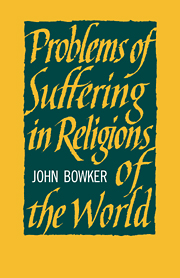Summary
THE FOUNDATIONS
To outside observers Buddhism has frequently seemed a pessimistic religion. Despite the serene countenance with which the Buddha is almost invariably portrayed, Buddhism has seemed to be preoccupied with suffering and grief: ‘Take the Book of Ecdesiastes, remove from it every reference to God, and you have a fair representation of the philosophy which forms the basis of Buddhism. “All is vanity.”’ But in fact to describe Buddhism as pessimistic is mistaken, although it is easy to see how that impression arises. Awareness of suffering, without any pretence or deception about it, lies at the very root and foundation of Buddhism. The Buddha's insight, in its most concentrated form, is found in the Four Noble Truths. In general terms they are usually expressed as: the existence of suffering, the causes of suffering, the cessation of suffering, and the path that leads to the cessation of suffering. There is thus no doubt at all that awareness of suffering is a deeply essential part of Buddhism, as Lama Govinda has emphasised:
Descartes, the famous French philosopher, started his philosophy with the formula: ‘Cogito, ergo sum,’ ‘I think, therefore I am.’ The Buddha went one step further in starting with an even more universally established principle, based on an experience that is common to all sentient beings: the fact of suffering.
Of all religions, Buddhism is the one which concentrates most immediately and directly on suffering.
- Type
- Chapter
- Information
- Problems of Suffering in Religions of the World , pp. 237 - 268Publisher: Cambridge University PressPrint publication year: 1970



